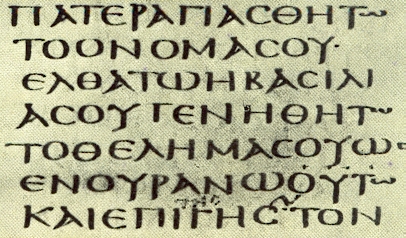July 25 1968 Pope Paul VI published his Encyclical letter Humanae Vitae.
His commissions, set up in response to the development of oral contraceptives in the 60s, came out more than 2/3 in favour of accepting such contraceptives amongst the bishops, and more than ¾ in favour amongst theologians and other specialists.
Pope Paul VI rejected the advice of his commission because this did not come to the conclusion that he did. In the encyclical Paul VI argues from Natural Law. Natural Law arguments should be able to reach the same conclusion by all – theists or not. The commission had by significant majority rebutted the minority report of four of its 72 members, immediately questioning the Natural Law argument of Paul VI.
If the Natural Law argument is so significantly disputed as holding water, is Humanae Vitae then to be understood as an infallible declaration?
The conditions for an infallible declaration are:
“when the Roman Pontiff speaks ex cathedra, that is, when, in the exercise of his office as shepherd and teacher of all Christians, in virtue of his supreme apostolic authority, he defines a doctrine concerning faith or morals to be held by the whole Church, he possesses, by the divine assistance promised to him in blessed Peter, that infallibility which the divine Redeemer willed his Church to enjoy in defining doctrine concerning faith or morals. Therefore, such definitions of the Roman Pontiff are of themselves, and not by the consent of the Church, irreformable.” (Pastor Aeternus, chap. 4)
Clearly in this encyclical Paul VI regarded himself as exercising his office (“by virtue of the mandate entrusted to Us by Christ” section 6), and it concerns a decision on morals to be held by the whole Church. The reaction to this teaching, including its repudiation in practice in such a high proportion of marriages, has undermined the confidence many Roman Catholics have in other edicts of Roman Catholic teaching authority. Positive references to Humanae Vitae now generally shy away from drawing attention to either its infallible nature, or its attempt at logic following Natural Law, and instead focus on the accuracy of its predictions about deterioration of other sexual moral values, deterioration that cannot be easily causally connected to the neglect of Humanae Vitae‘s teaching.
Lambeth and sexual ethics
On this 40th anniversary of Humanae Vitae, the bishops of Anglicanism are meeting at the Lambeth Conference, surrounded also by issues of sexual ethics. In the late 19th and early 20th century Lambeth Conferences also condemned contraception, linking it to prostitution, and still in 1920 calling on governments to ban all availability of contraceptives. By the 1958 Lambeth Conference the bishops had seen contraception as being something positive within marriage, and when they met in 1968 they suggested the pope was mistaken. That was an acknowledgement that Lambeth had been wrong 48 years earlier, or that the times had changed. Both might be true. In any case Anglican bishops have the right to be wrong and to change their mind.
The first significant sexual declaration a Lambeth Conference made was to state that wives in a polygamous marriage might be baptised, but not husbands (1888). Like many other sexual ethical declarations, this would be reversed within a century. That divorced persons could not be remarried in church was overturned later. In 1918 women over 30 years old were allowed to vote in Britain, and in 1920 women gained the vote in USA. The Lambeth Conference that year suggested lay women might hold equal rights to lay men – it took five decades to put that into effect in the United States – and then look how rapidly there women were allowed to be ordained as priests and bishops. In 1978, only thirty years ago, there was still no agreement at Lambeth on the ordination of women.
Sexual teachings and practice within Christianity are changing rapidly. Some see this as a giving in to the increasing depravity of “the world”. Others see it as part of the dynamic of the gospel – an outworking of God’s action in the Hebrew people and through Jesus. Others see it as listening to the Spirit addressing us, including through the new context we find ourselves in.




